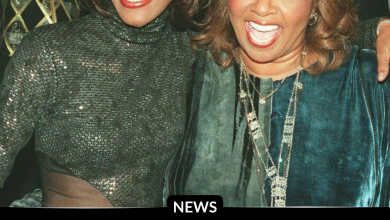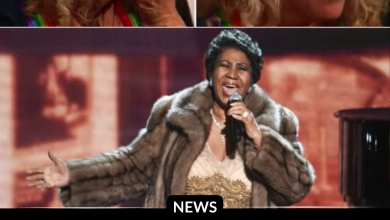Audrey Hepburn’s Mother Played a Crucial Role in Shaping Her Moral Compass—Here’s How
OPINION: This article may contain commentary which reflects the author's opinion.
Audrey Hepburn, renowned for her timeless elegance and humanitarian efforts, was shaped by many influences throughout her life, but none more so than her mother, Ella van Heemstra. Ella, a Dutch baroness, played an integral role in shaping Audrey’s moral compass, particularly during the formative years of World War II. Their complex relationship, punctuated by moments of profound challenge and transformation, laid the foundation for Audrey’s later work with UNICEF and her unwavering commitment to empathy, resilience, and standing up against injustice.
Early Life and Family Background
Audrey Kathleen Ruston, born on May 4, 1929, in Ixelles, Brussels, to Ella van Heemstra and Joseph Victor Anthony Ruston, had a childhood marked by constant upheaval. The family moved between England, Holland, and Belgium due to her father’s work, and the strain of these relocations was compounded by her parents’ divorce in 1935, an event Audrey later described as “the most traumatic incident of my life” (Audrey Hepburn – Wikipedia).
Ella van Heemstra, Audrey’s mother, came from an aristocratic background, and her political leanings were initially controversial. During the prelude to World War II, Ella, alongside her husband Joseph, expressed pro-fascist sympathies. She even wrote articles praising Adolf Hitler and met him in 1935, as documented in Dutch Girl: Audrey Hepburn and World War II by Robert Matzen. This created a conflicted environment for young Audrey, who would later feel deep shame over her mother’s early stance as Nazi sympathizers. As the war loomed, the family’s ideological divide, compounded by the looming Nazi occupation, would leave an indelible mark on Audrey’s moral development.
Wartime Experiences and Moral Transformation
When World War II broke out, Ella moved Audrey to Arnhem in the Netherlands, believing it would offer them a safe haven. However, in 1940, the German invasion shattered those hopes, plunging the family into the harsh realities of occupation. The subsequent Hunger Winter of 1944, where Audrey faced extreme malnutrition, left an emotional scar that would stay with her throughout her life. During this time, Ella’s initial support for the Nazi regime, though a source of shame for Audrey, was gradually replaced by a deep resistance to the oppression unfolding before them.
As detailed in TIME, Ella’s transformation from Nazi sympathizer to an active supporter of the Dutch Resistance became a pivotal part of Audrey’s moral education. Ella witnessed the horrors of the Nazi regime firsthand—most notably the execution of her brother-in-law and the deportation of Jewish friends—which prompted her shift in allegiance. This change in her worldview would deeply influence Audrey, teaching her the power of personal growth and the importance of standing up against injustice. Audrey herself, using her ballet skills, contributed to resistance efforts, as the van Heemstra family participated in illegal musical performances to raise funds for the Dutch Resistance.
Through this experience, Audrey learned an essential lesson: moral failings could be redeemed, but only through action, integrity, and courage. Ella’s shift from sympathizer to resistor exemplified redemption, an idea Audrey carried into her adult life, particularly in her role as a humanitarian.
Protective Influence and Family Values
In addition to her political transformation, Ella’s protective nature during the war played a crucial role in Audrey’s development. Despite her earlier political leanings, Ella sought to shield Audrey from the worst consequences of the occupation, using her position to maintain cordial relationships with German officers to ensure their safety. While this pragmatic approach was morally ambiguous, it underscored the importance of family protection—a value Audrey would carry throughout her life. Audrey’s experiences during the Hunger Winter, where she and others survived by eating tulip bulbs, solidified her empathy for the suffering of others, an empathy that she later channeled into her work with UNICEF.
Audrey’s son, Luca Dotti, has reflected on the impact of the war on his mother, noting in interviews that Ella’s protective nature was pivotal in shaping Audrey’s character. Dotti acknowledged that his mother’s moral compass was formed by both the nurturing and the complex, morally ambiguous choices made by her mother during the war (lady.co.uk). Ella’s journey from political supporter to resistance fighter, paired with her role as a protector, was a key influence on Audrey’s own beliefs.
Impact on Audrey’s Moral Compass
The lessons Audrey learned from her mother during the war are evident in the life choices she made as an adult. Audrey’s deep commitment to humanitarian work, especially her efforts with UNICEF, was rooted in the compassion and understanding she absorbed from Ella. As The Guardian notes, Audrey’s strength, compassion, and resolve were attributes that were likely honed by the complex relationship with her mother, shaped by the wartime environment and Ella’s eventual moral awakening.
Audrey’s ability to forgive and remain close to her mother, despite her earlier pro-Nazi sympathies, further suggests that she valued understanding, growth, and second chances. Her willingness to accept her mother’s transformation mirrored Audrey’s own belief in the potential for redemption and the importance of standing up for those who are vulnerable and oppressed.
Conclusion
Audrey Hepburn’s moral compass was profoundly shaped by her relationship with her mother, Ella van Heemstra. From Ella’s early pro-fascist sympathies to her eventual support of the Dutch Resistance, Audrey learned the importance of empathy, resilience, and standing against injustice. Ella’s actions during the war, including her protective nature and later transformation, provided Audrey with the values that defined her later life. The lessons Audrey learned from her mother helped shape her into the iconic humanitarian she became, showing that even in the most complex circumstances, compassion and moral growth can prevail.



